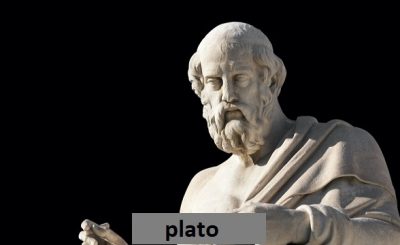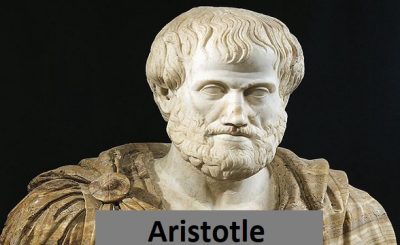Adam Smith was an 18th-century Scottish economist, philosopher and author who is considered the father of modern economics.. He is best known for his book, An Inquiry into the Nature and Causes of the Wealth of Nations, which is considered to be the first modern work of economics. Smith argued that the wealth of a nation is determined by the productivity of its citizens and advocated for free trade, competitive markets, and minimal government intervention.

Early life
Adam Smith was born in Kirkcaldy, Scotland, on June 5, 1723. He was the son of a lawyer and civil servant. His mother died shortly after his birth. Smith attended the University of Glasgow at the age of fourteen, where he studied moral philosophy under Francis Hutcheson. He then attended Balliol College, Oxford, for a short time before returning to Glasgow to teach moral philosophy. Smith was highly influenced by the writings of David Hume and other Scottish Enlightenment thinkers. He also developed a strong interest in economics and political economy. He wrote several books on the subject, including The Wealth of Nations, which was published in 1776. Smith was an advocate of free market capitalism and an opponent of government intervention in economic matters. He believed that an “invisible hand“ of the marketplace would naturally lead to the most efficient allocation of resources. He also argued for the abolition of slavery and the establishment of free trade. Smith was an active member of the Philosophical Society of Edinburgh, which was influential in the development of the Scottish Enlightenment. He was also a founding member of the Royal Society of Edinburgh, a scientific organization. Smith died in 1790 at the age of 67. He was buried in Edinburgh. His works, including The Wealth of Nations, remain influential in economic thought and have had a lasting impact on the development of modern economics.
Glasgow
Adam Smith’s Glasgow was a vibrant and diverse city in the 18th century. Located on the River Clyde, it was a major port and hub of industry and trade. Smith, who was born and raised in the city, was a renowned philosopher and economist whose most famous work, The Wealth of Nations, was written in Glasgow.
The city was known for its great universities, including the University of Glasgow, where Smith studied and later taught. It was a center of learning and culture, and its citizens were known for their strong work ethic and entrepreneurial spirit.
Smith’s influence on the city was great, and it was during his time there that the city saw a great expansion in its economy. It was also during this period that the city became known for its distinctive architecture and the development of the New Town.
The city was also home to a thriving cultural life, with the establishment of the Theatre Royal and the Royal Exchange. Smith was a great supporter of the arts, and his works were widely read and discussed in the city.
Smith’s legacy in Glasgow is still evident today, and his influence can be seen in the city’s culture, economy, and architecture. His works continue to be studied and discussed, and he remains a source of inspiration to many.
The Theory of Moral Sentiments of Adam Smith
The Theory of Moral Sentiments is a book written by Adam Smith, the Scottish philosopher and economist, and published in 1759. In this work, Smith explored the nature of human moral sentiments and how they influence social behaviour.
Smith posited that human beings are naturally social creatures with an innate desire to connect with and care for one another. This desire is what motivates us to form societies and engage in social interactions. Smith believed that our moral sentiments, or our capacity to empathize with others and feel their pain or pleasure as if it were our own, play a critical role in shaping our behaviour.
Smith argued that these moral sentiments are not fixed or absolute, but rather are subject to change over time and can be influenced by our environment and experiences. He also believed that moral sentiments are not purely individual, but are shaped and reinforced by the norms and values of our society.
Smith’s theory of moral sentiments is rooted in the idea that individuals seek to be virtuous and that this pursuit of virtue is what drives our social behaviour. He believed that individuals are motivated to act in ways that align with their own sense of right and wrong, and that this sense of morality is shaped by our relationships with others.
Overall, The Theory of Moral Sentiments is a foundational work in the field of ethics and a key text in the Scottish Enlightenment. Its emphasis on empathy, social connection, and the pursuit of virtue continues to be influential in contemporary discussions of morality and social behaviour.
Tours on the Continent
Adam Smith, the Scottish philosopher and economist, never traveled to the Indian subcontinent. However, his work, “The Wealth of Nations”, contains extensive discussions of India’s economic conditions and trade practices based on his study of contemporary accounts and reports.
Smith was particularly interested in the East India Company, which he viewed as a monopolistic entity that imposed restrictions on free trade and harmed the Indian economy. He criticized the Company’s practice of exporting raw materials and importing finished goods, which he believed led to a drain of wealth from India.
Smith was also critical of the Indian caste system, which he viewed as a major barrier to economic progress. He argued that the caste system limited mobility and innovation, and that it contributed to the stagnation of the Indian economy.
Despite his lack of firsthand experience with the subcontinent, Smith’s ideas and writings have had a significant impact on economic and political thought in India and beyond. His emphasis on free trade, individual liberty, and the benefits of economic specialization and exchange have influenced policy and intellectual debates in India and other countries around the world.






